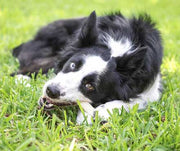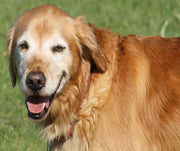Popular Hypoallergenic Dog Breeds


Love dogs but can't stop sneezing around them? You're not alone. Many people dream of having a furry friend but struggle with pet allergies. The good news? Some dog breeds are better for allergy sufferers than others.
While no dog is 100% allergy-free, hypoallergenic dogs produce less dander and shed less, making them easier on sensitive noses. From the elegant Portuguese Water Dog to the playful Bichon Frise, these breeds open doors for dog lovers who thought pet ownership was out of reach.
Let's look at some top picks for allergy-friendly dogs. Whether you're drawn to the clever Standard Poodle or the unique American Hairless Terrier, you'll find options that fit different lifestyles and living spaces.
Remember, "hypoallergenic" doesn't mean zero allergies - it just means less likely to trigger them. Each person's sensitivity is different, so spending time with a breed before bringing one home is smart. With the right match, you can enjoy the joys of a dog.
What Causes Allergic Reactions to Dogs?
According to the American College of Allergy, Asthma, and Immunology, roughly 10% of the U.S. population is allergic to dogs. Symptoms include:
- Itching and runny eyes
- Stuffed and runny noses
- Sneezing
- Coughing
- Hay fever
Contrary to popular belief, however, the immune response in our bodies is not simply set off by a dog's fur.
Rather, it is the proteins found in a dog's cells, saliva, or urine that can trigger allergic reactions in humans. When a dog grooms itself, these proteins cling to the dog's fur and skin. This dry skin, also called pet dander, can flake off and stick to floors, walls, furniture, and clothing.
While no dog breed is 100% hypoallergenic, various breeds with non-shedding coats produce less dander. If the proper precautions are taken and regular cleaning is performed, allergic reactions can be kept to a minimum!
Living with a Hypoallergenic Dog

Humans' allergies are easily manageable. Here are some quick tips that will help you survive some minor allergies around your furry companion:
- Maintain hygiene at home: Make sure that your house is always clean. Vacuum regularly and sweep to remove any pet hair on carpets and floors.
- Use an Air Purifier: It can be extremely useful for trapping pet dander present in your surroundings.
- No dander: Brush your pet daily. Commit to regular grooming sessions, and make sure there is no dander left on your dog's bed.
- Medication: Used sparingly, antihistamines and other medications can be helpful.
- Diet: A healthy diet can also help limit the amount of dead skin on your dog.
- Frequent hand washing: Always wash your hands after playing or petting your dog.
5 Popular Hypoallergenic Dog Breeds

1. Afghan Hound
The Afghan Hound, with its luxurious silky coat and regal appearance, is a breed admired by dog lovers around the world. Originally bred in Afghanistan, this elegant hound is known for its independent and aloof demeanor. Although it has a long, flowing coat, it’s considered a hypoallergenic breed due to its low shedding.
However, Afghan hounds have extensive grooming needs—regular bathing and brushing are a must to maintain their silky hair and prevent matting. Because of their high-maintenance grooming requirements and strong-willed personalities, Afghan Hounds are best suited for experienced owners who appreciate their unique characteristics.
2. Bichon Frise

Absolutely adorable and highly affectionate, the Bichon Frise is a small dog with a playful nature, making it an excellent choice for families and children. With a soft, curly coat that has a coarse outer layer and dense undercoat, this breed does not shed, which helps prevent allergic reactions.
Although the Bichon Frise is considered a hypoallergenic dog, its curly coat requires daily grooming to prevent matting and skin issues. Their cheerful and gentle temperament, combined with their minimal shedding, make them one of the best hypoallergenic dogs for those looking for a cuddly companion.
3. Giant Schnauzer
For those seeking large hypoallergenic dogs, the Giant Schnauzer is a perfect fit. Known for its wiry topcoat and protective nature, this hypoallergenic breed is a powerful and loyal guardian. Giant Schnauzers were originally bred for herding and guarding livestock, making them naturally active and alert.
With a double coat that resists the elements, they do not shed heavily, making them ideal for those with dog allergies. Regular grooming and exercise are essential, as this breed has high energy levels and a dense coat that needs frequent brushing. Proper socialization is key, as their strong territorial instincts can be overwhelming if not managed.
4. Irish Water Spaniel
The Irish Water Spaniel is a unique hypoallergenic dog breed known for its curly coat and love of water. Hailing from Ireland, this athletic dog has a dense, water-resistant coat that requires regular brushing to prevent matting.
As one of the best hypoallergenic breeds for active families, Irish Water Spaniels are playful and energetic and enjoy participating in water activities. Their low shedding and less dander production make them suitable for allergy sufferers, while their affectionate personalities and intelligence make them great companions for those looking for a hypoallergenic breed with a distinctive look.
5. Labradoodle

The Labradoodle, a crossbreed of the Poodle and Labrador Retriever, has gained popularity as a hypoallergenic dog due to its low shedding and friendly demeanor. This breed can inherit the curly coat of the Poodle parent, which significantly reduces dander and prevents matting.
While Labradoodles are known for their gentle and affectionate personalities, they also have high energy levels and require ample exercise. Regular grooming is necessary to maintain their coat and keep it free of tangles. Labradoodles come in various sizes, making them suitable for a variety of households, from apartments to homes with large yards.
Importance of Dog Grooming

Regular grooming does more than keep your dog looking good - it's key for managing pet dander and hair that can trigger allergies.
Different hypoallergenic breeds have different grooming needs. Standard and miniature poodles need consistent brushing to prevent their curly coats from matting. Portuguese Water Dogs have a thick coat that requires weekly brushing and occasional trimming. The bichon frise, with its fluffy white coat, needs daily brushing to stay clean and tangle-free.
Some tools make grooming easier, such as:
- Slicker brushes work well for curly-coated breeds
- Pin brushes are good for longer-haired dogs like the Afghan Hound
- Grooming wipes help remove loose dander between baths
- Dog nail trimming tools are essential for maintaining proper paw health and preventing overgrown nails.
- Detangling sprays prevent knots in silky-coated breeds
Even "hairless" breeds like the Chinese Crested need skin care to stay healthy. Regular baths with gentle shampoo keep their skin clean and prevent oil buildup.
In addition, some of the good grooming habits you need to take note of include:
- Brush your dog often to remove loose hair
- Bathe them every 4-6 weeks
- Keep nails trimmed
- Clean ears regularly
- Use the right tools for your dog's coat type
When you keep up with grooming, you help reduce allergens in your home. This makes living with your hypoallergenic dog even better for allergy sufferers. Plus, grooming time is a chance to bond with your pet and check for any health issues.
Grooming is extra important for breeds like the Irish Water Spaniel or Soft-Coated Wheaten Terrier. Their unique coats need special care to stay healthy and minimize shedding. Some owners choose to have their dogs professionally groomed every few months, with regular brushing at home in between.
Creating a Harmonious Home with Hypoallergenic Dogs Using Premium Pet Essentials

Hypoallergenic dog breeds can make wonderful companions for allergy sufferers, offering the joy of pet ownership without the concern of excessive allergens. Popular hypoallergenic dogs, such as Poodles, Shih Tzus, and Bichon Frises, shed less and often require minimal grooming, making them a good fit for many households. Selecting a hypoallergenic dog breed requires understanding both the breed’s characteristics and your own needs.
For those welcoming a hypoallergenic dog into their home, Petmate’s wide range of premium pet supplies can help create a healthy environment for both you and your pet. With the right choice, a hypoallergenic dog can become a beloved member of your family, providing the companionship and joy only a pet can bring.
Previous article

Next article

Related posts
View all-

How to Keep Your Pet Calm During Thanksgiving
Thanksgiving is a time for family, friends, and food, but for our pets, the holiday can be overwhelming. The sudden change in routine, unfamiliar faces and scents, and increased noise can trigger significant stress. Understanding why your pet might feel anxious is the first step toward creating a peaceful holiday experience for everyone, including your furry family members. This guide offers calming tips for pets and practical solutions to ensure your dog or cat feels safe and secure during the festivities.
Read Article -

Top Travel Essentials for Pets This Holiday Season
Holiday travel often means bringing the whole family along, and for many of us, that includes our furry companions. Preparing for holiday pet travel is about more than just packing a bag; it's about ensuring your pet's safety, comfort, and happiness from the moment you leave home until you return. A little planning helps reduce stress for both you and your pet, making the journey a positive experience for everyone involved.
Read Article -

Best Leashes and Collars for Daily Walks: A Pet Parent’s Guide
A daily walk with your dog isn't just a chore—it's a chance to bond, explore, and stay active together. The right leash and collar can make every walk safer and more enjoyable for both of you. With numerous styles and materials available, it's essential to find gear that suits your dog's needs and your lifestyle.
Read Article



